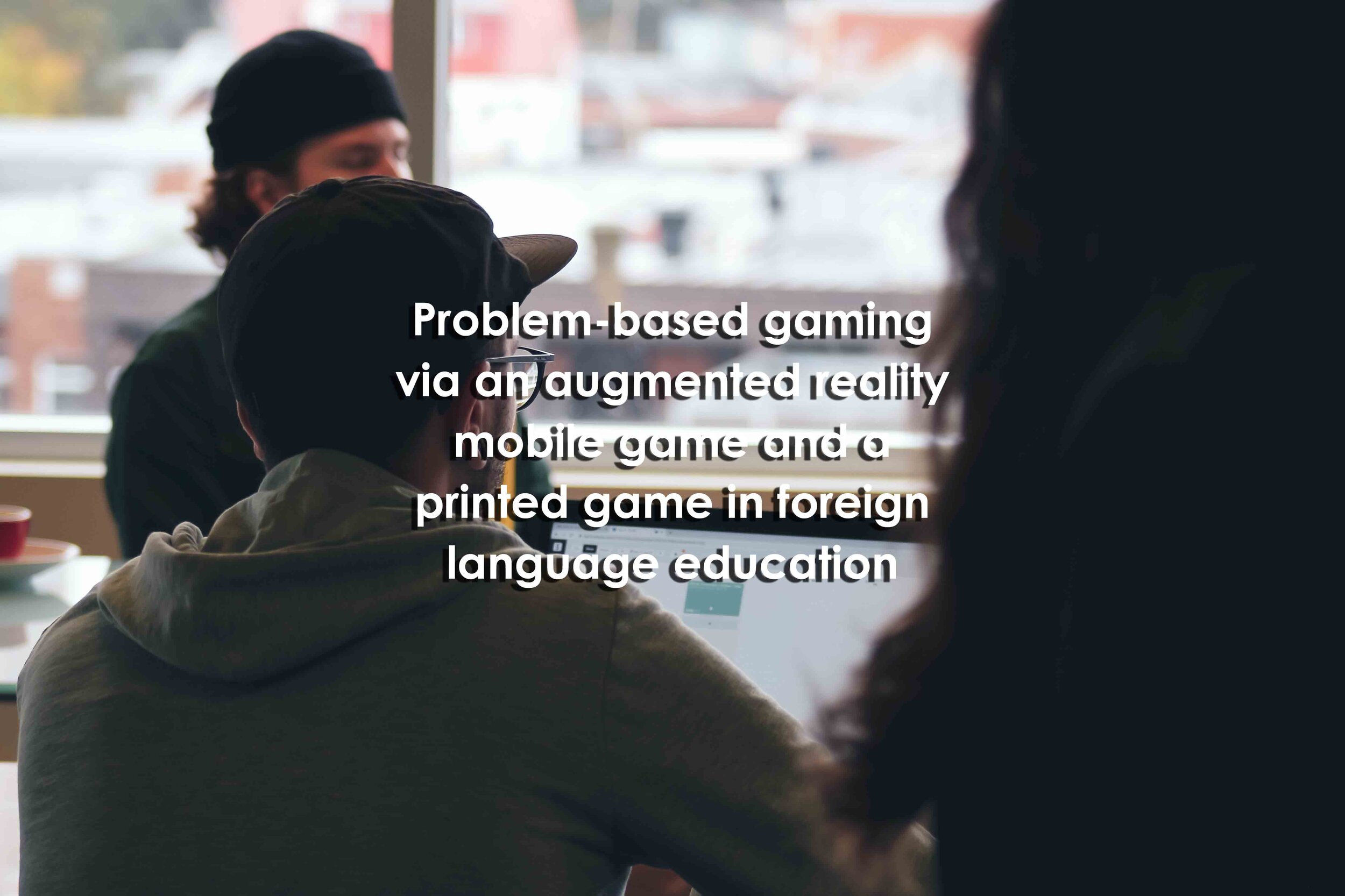Problem-based gaming via an augmented reality mobile game and a printed game in foreign language
Problem-based gaming via an augmented reality mobile game and a printed game in foreign language education
Problem-based gaming via an augmented reality mobile game and a printed game in foreign language education
Juhee Lee
Abstract
"Grounded in game-based learning and problem-based learning, this study compared the effects of an augmented reality (AR) mobile game and a printed game on student engagement and attitudes toward foreign language learning. For this purpose, a narrative-driven, location-based AR mobile game was developed based on the analysis, design, development, implementation and evaluation approach. The participants were 42 undergraduates studying English as a foreign language (EFL) in South Korea. The AR group played a location-based AR mobile game in English while moving around the university campus and collaborating with team members, whereas the print-game group played the same game color-printed onto paper in teams in the classroom. After the activities, both groups completed case reports, Likert-scale surveys, and adjective checklists, and participated in interviews. The results indicated that both groups demonstrated comparable levels of behavioral, cognitive, and emotional engagement as well as positive attitudes in learning EFL, without significant group differences. The adjective checklist also indicated that the AR- and print-games provided students with a similar quality of experience. The qualitative data suggested that, if the EFL instruction is performed in accordance with game-based learning and problem-based learning principles, students may sustain high levels of engagement and positive attitudes, regardless of the medium (AR technology versus print). However, the only significant group difference was found in the perceived usefulness for learning EFL, which favored the print-mode game. While AR technologies provided authentic and immersive learning environments, EFL students perceived print reading as more useful for learning English than digital reading. This study makes a case for the development and application of narrative-driven, location-based AR games in foreign language education."
Reference
Lee, J. (2020). Problem-based gaming via an augmented reality mobile game and a printed game in foreign language education. Education and Information Technologies, 1-29. https://link.springer.com/article/10.1007/s10639-020-10391-1
Keywords
Augmented reality mobile games, Game-based learning, Problem-based learning, Foreign language education, Student engagement

